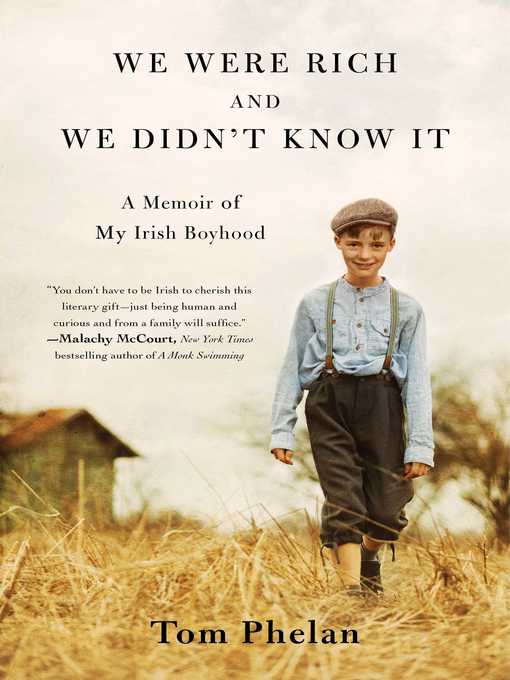
We Were Rich and We Didn't Know It
A Memoir of My Irish Boyhood
کتاب های مرتبط
- اطلاعات
- نقد و بررسی
- دیدگاه کاربران
نقد و بررسی

December 15, 2018
A tender recollection of growing up on a farm in Ireland in the 1940s.In precise, vibrant prose, novelist Phelan (Lies the Mushroom Pickers Told, 2015, etc.) creates a finely etched portrait of his parents and siblings, assorted friends and relations, the bully who made his school days a misery, and many eccentrics, clergymen, and neighbors who peopled his small world. On a 52-acre farm in County Laois, the Phelan family's house was heated by the kitchen fireplace, hot-water bottles relieved the beds' cold dampness for most of the year, and dry overcoats were piled on as extra blankets. Every Saturday evening, a black, cast-iron pot was hung above the fire, heating water in which every family member bathed. "As a child, I believed that my family was poor," writes the author, because unlike some other children, he rarely had money for small pleasures. Whatever luxuries they had--a chemical toilet, gramophone, and Brownie Box camera, for example--were the rewards of tireless, demanding toil by his father, "with his all-devouring work ethic," and his mother, "the sheltering harbor from the storms that sometimes raged in Dad's head and spewed out in loud and angry words." Frustration, fatigue, and worry fueled those storms. "I remember him as a man who loved his wife and his children," Phelan reflects, "who at times was driven over the edge while trying desperately to take care of them." Being a farmer was not in the author's future; instead, it was assumed he was destined for the priesthood, a vocation he did not question. He absorbed Catholic theology and developed a requisite sense of guilt about breaking the Ten Commandments as well as a healthy skepticism about the "Irish mania" for missionary work: "the conversion of happy pagans into miserable Catholics." He reveled in being an altar boy, besotted by the lovely Sister Carmel, who made learning responses for the Latin Mass "a time of warmth, love, and delight." Ordained in 1965, he left the priesthood after a decade.A captivating portrait of a bygone time.
COPYRIGHT(2018) Kirkus Reviews, ALL RIGHTS RESERVED.

February 18, 2019
Novelist Phelan (In the Season of the Daisies) stitches together a series of tender and earnest anecdotes of coming-of-age in the rural Irish midlands of the 1940s. Growing up on a farm, Phelan raised pigs, helped his father with the horses (“while Dad cleaned the stable and scattered soft barley straw, the children walked the horses around the farmyard”), and drove cattle to a nearby livestock fair, where he learned the art of negotiating (when one buyer made “a meaningless offer, Dad wouldn’t even look at the man”). In elementary school, Phelan learned “to perform my first religious rite—the sign of the cross.” Phelan had expressed interest in becoming a priest, and before he headed off to college his neighbor warned him that if he became a priest “he’ll be sorry in the long run.” Nevertheless, Phelan was ordained to the priesthood in 1965, but left it 11 years later. Phelan’s father provides the heartbeat of the memoir: he’s a taciturn, no-nonsense man who loved and respected his family, worked hard, (“Every day, Dad organized the cleaning up after dinner, with himself doing the washing”). Phelan’s vivid images of life on the farm and at school provide a rich and colorful snapshot of the times that shaped him.

























دیدگاه کاربران